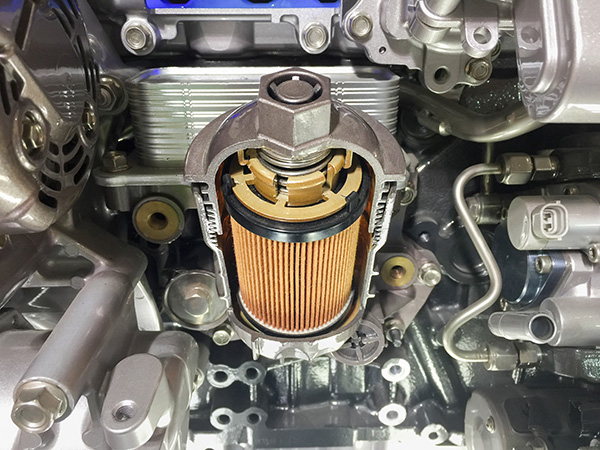
Have you ever let your fuel tank run dangerously low? Maybe you've even pushed your car until it completely ran out of gas. While it might seem like a minor inconvenience, running out of fuel can have lasting consequences, particularly for your fuel pump. Many drivers don’t realize that this critical component relies on the fuel itself to stay cool and lubricated. So, can running out of fuel damage your fuel pump? Let's find out.
How Does a Fuel Pump Work
Your car’s fuel pump delivers fuel from the gas tank to the engine. Located either inside the fuel tank or close to it, this pump pressurizes the fuel and sends it through the fuel lines to the engine, ensuring a consistent flow for combustion. Most modern cars use electric fuel pumps that rely on a constant supply of fuel to maintain optimal performance.
But here's where things can go wrong: when your tank runs dry, the pump is forced to operate without fuel, which it depends on for cooling and lubrication. This lack of fuel can cause the pump to overheat and wear out prematurely.
Why Running Out of Fuel is Bad for Your Fuel Pump
If you're wondering whether running out of fuel could really do harm, the answer is yes—and the damage may be more serious than you think. When fuel levels drop too low, several things happen that can affect your fuel pump:
Loss of Cooling and Lubrication
The fuel pump relies on the gasoline in your tank to cool and lubricate its components. Running on an empty tank means the pump is working harder than it should without the lubrication it needs to prevent friction and wear. Over time, this can cause the pump to overheat and fail.
Debris Buildup
As your fuel tank runs low, dirt, sediment, and rust particles that accumulate at the bottom of the tank can get sucked into the fuel pump. This debris can clog the pump and filters, leading to reduced performance or, worse, total failure.
Increased Wear and Tear
Constantly running low on fuel means your fuel pump is working overtime. The pump has to draw in the last bits of fuel, putting unnecessary strain on the system, which can lead to a shortened lifespan of the fuel pump.
Signs of a Failing Fuel Pump
It’s not always easy to tell if your fuel pump is starting to fail, but there are a few warning signs to look out for:
- Difficulty starting the engine: A worn-out fuel pump may struggle to deliver the necessary fuel pressure to start the engine.
- Stalling or sputtering at high speeds: If the pump can't maintain a steady flow of fuel, your car may stall or sputter, especially when driving at higher speeds.
- Whining noise from the fuel tank: If you hear a high-pitched whining sound coming from the rear of your vehicle, it could be the fuel pump struggling to work efficiently.
- Loss of power during acceleration: If your car hesitates or loses power when you accelerate, the fuel pump may not be supplying enough fuel to the engine.
How to Avoid Fuel Pump Damage
To keep your fuel pump in good shape, it's important to avoid running your car too low on gas. Here are some practical tips to help you protect your fuel pump:
Keep your tank at least one-quarter full
While it’s tempting to let your tank run low before refueling, it's a good idea to keep your gas tank at or above one-quarter full. This helps ensure that your fuel pump stays submerged and properly cooled and lubricated.
Use quality fuel
Always use high-quality fuel from trusted stations to minimize the risk of contamination that could clog your fuel pump.
Regularly check for leaks or blockages: Have your fuel system inspected periodically by a professional to identify and fix any potential issues before they worsen.
What Happens if the Fuel Pump Fails
A failed fuel pump can leave you stranded and in need of a costly repair. Replacing a fuel pump is no small expense, and in some cases, the damage may extend to other components of your vehicle's fuel system. This is why it’s so crucial to avoid running out of fuel and putting unnecessary strain on your fuel pump.
If you suspect that your fuel pump might be failing, it's better to get it checked sooner rather than later. Catching a problem early on can save you money and prevent unexpected breakdowns while you're on the road.
Running low on gas frequently? Get your fuel system inspected at Neighborhood Tire Pros to prevent long-term damage to your fuel pump. Contact us today for reliable maintenance and repair services you can trust!